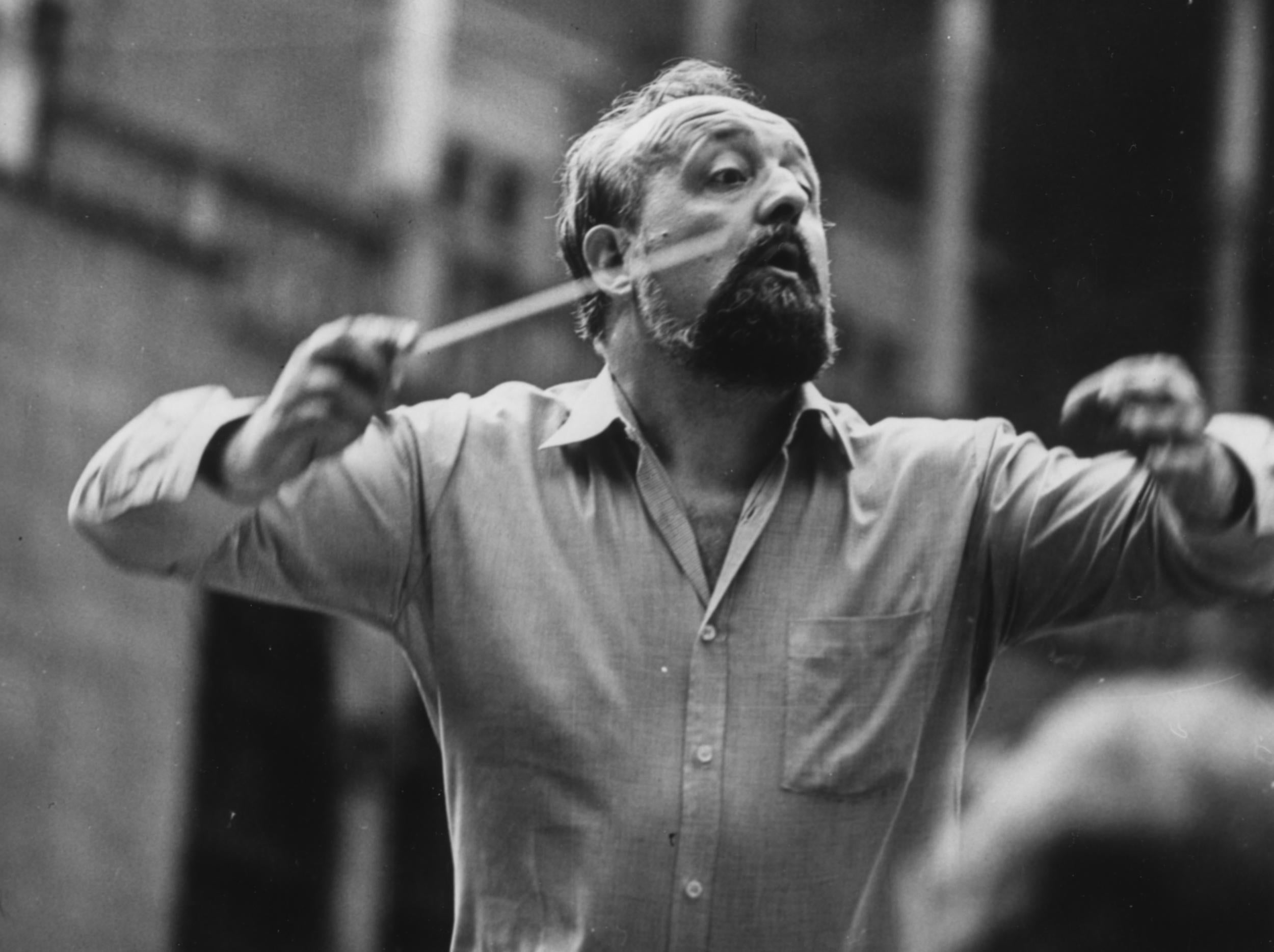Krzysztof Penderecki: Acclaimed composer known for his foreboding sound
His highly original music reeled with emotional intensity and was favoured by filmmakers

Krzysztof Penderecki was a composer and conductor whose music evoked religious wonder, apocalyptic terror and the tumultuous history of his native Poland with an emotional intensity that made him a favourite of rock musicians and filmmakers.
Penderecki, who has died aged 86, was one of the world’s pre-eminent composers, known for writing musical lamentations inspired by the Second World War, the Holocaust, the Polish anti-communist movement and Old Testament religious texts that reflected his Catholic upbringing.
Although he spent much of his career writing music under the yoke of communism, he emerged on the international scene in the 1960s as a bracingly original talent, composing choral and orchestral works that featured quarter tones, indeterminate pitches, rapid glissandi and eerie knocks, shrieks, whistles and sirens. Some of his scores did not specify specific notes; others instructed string musicians to slap their instruments or play behind the bridge.
Penderecki also wrote operas, symphonies and chamber pieces, developing a more familiar sound that harked back to music’s romantic era. While he admired modernists such as Olivier Messiaen, his tastes as a listener extended back to Strauss and Bach; in his hands, old forms and musical attitudes became new again.
Some critics and fellow composers accused him of selling out, capitalising on emerging trends in classical music. But Penderecki insisted he was simply searching for new ways to grapple with old themes – history, faith, human suffering – and maintained a devoted following while spending some nine months each year travelling the world, promoting his music and conducting major orchestras.
Raised in southeastern Poland, Penderecki watched from his window as Nazi soldiers hanged resistance fighters and rounded up Jews during the Second World War. He drew on his childhood memories for works, including Threnody for the Victims of Hiroshima (1960), a harrowing shriek of 52 strings, and Dies Irae (1967), a choral piece dedicated to the victims of the Auschwitz death camp, which stood roughly 100 miles west of his hometown.
While writing Polymorphia (1961), he wired psychiatric patients to electroencephalogram machines and then played a recording of Threnody, translating their brain waves into new contours of sound. Another early work, St Luke Passion (1966), was an atonal setting of the Passion of Jesus story, and a rare religious work in Poland at a time when the state was officially atheist.
Penderecki’s unconventional techniques and focus on timbre and texture made him a leading influence for musicians such as Jonny Greenwood, the composer and Radiohead guitarist who collaborated with Penderecki on a 2012 album.
Penderecki’s otherworldly sounds cropped up repeatedly in moody dramas and horror films, including in William Friedkin’s The Exorcist (1973), Stanley Kubrick’s The Shining (1980), Alfonso Cuaron’s Children of Men (2006) and Martin Scorsese’s Shutter Island (2010). In 2017 Threnody soundtracked a nuclear-blast sequence in David Lynch’s Twin Peaks reboot. The composition was among Penderecki’s best-known works and established his international reputation after it won a Unesco music award.
By the end of the 1970s, Penderecki was turning towards more traditional melodic sounds, which came to the fore in his opera Paradise Lost (1978), adapted from Milton’s epic poems, and in Polish Requiem, first assembled in the early 1980s before being substantially revised over the next two decades. Sections of the requiem commemorated victims of the Warsaw uprising and the country’s bloody 1970 general strikes, among other episodes from Polish history.
Penderecki wrote his seventh symphony, Seven Gates of Jerusalem (1997), to commemorate the city’s third millennium. The work was unabashedly romantic, while still featuring some experimental touches typical of his earlier compositions.
“I no longer ask myself, is this music different or original?” Penderecki said shortly before completing the symphony. “So many new things have been discovered in the 20th century that now, at the end of the century, we need some kind of synthesis, some musical language which will allow us just to write music. We live in a decadent time, because in the arts there is absolutely nothing new happening. It’s not a period of discovery. It’s no longer possible to find something which will shock other people, because everything has already been done.”
Krzysztof Eugeniusz Penderecki was born in Debica, Poland, in 1933. While his parents arranged piano lessons, he embraced music only after picking up a violin that his father, a lawyer, had received as a gift.
Penderecki studied composition at the State Higher School of Music (now the Academy of Music) in Krakow. After graduating in 1958, he joined the faculty and a year later made his name in Poland by sweeping the top prizes in a state composers’ contest.
He later served as the academy’s rector and taught in West Germany and at Yale University. He won four Grammy awards, including one for concerto recordings featuring violinist Anne-Sophie Mutter and cellist Mstislav Rostropovich.
His first wife, Barbara, was a pianist whose practice sessions led Penderecki to compose outside the house, from a Krakow cafe where he was said to have written everything on paper napkins. Their marriage ended in divorce, and in 1965, he married Elzbieta Solecka, who had taken music lessons from Penderecki’s ex-wife.
He is survived by his wife, a daughter from his first marriage and two children from his second marriage.
Krzysztof Penderecki, composer and conductor, born 23 November 1933 X, died 29 March 2020
© Washington Post
Join our commenting forum
Join thought-provoking conversations, follow other Independent readers and see their replies
Comments
Bookmark popover
Removed from bookmarks